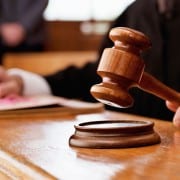|
Getting your Trinity Audio player ready...
|
Today, 23 June, is World Whistleblowing Day, an occasion to reflect on the strong ethics, determination to do what’s right, and sometimes outright bravery shown by those who decide that they cannot turn a blind eye to corruption.
At Corruption Watch, our work is driven by our reporters. Many risk their safety, their jobs and even their lives to expose corruption in their communities and places of work, as well as in municipalities and private firms, and in dealing with service providers. Despite the risks, to date we have received over 15 000 reports since we opened our doors in January 2012.
The importance of whistleblowers’ actions cannot be over-emphasised. Whistleblowing can save money, lives, and the environment. It is essential in bringing to light illegal activities and corruption which are contrary to public interest and threaten public health and safety. We think of high-profile cases such as the #PanamaLeaks and closer to home, the #GuptaLeaks, but the whistleblower who reports a traffic officer for soliciting a bribe has played no less an important role in bringing about good governance in our country.
Here at CW we value each and every report that comes in. Because we are a small NGO that relies on funding to do our work, we cannot investigate all instances of corruption that are reported to us. Indeed, investigation does not even make up the bulk of our work. However, the information in the reports is used for a variety of corruption-busting purposes. The possibilities include:
- Adding the report to a number of similar reports on a topic which we are campaigning for. For example, we group reports of immigration irregularities under our refugee campaign, Project Lokisa, which has been running in Home Affairs centres for some months now.
- Publishing the report on our website so that other people who have knowledge of similar incidents can read it and be encouraged to report further.
- Using the incident as the basis for a news story or research report, which is published on our website.
- Referring the incident to a journalist to expose the incident on our website or in the media.
- Referring the incident to a government authority for investigation (such as the Independent Police Investigative Directorate or Public Protector).
- Asking for more information from the person who reported the incident to us.
- Starting an investigation.
- Drawing up comprehensive advocacy documents, containing details of problem areas, their impact, and our recommendations, to present to government departments or authorities for their further action.
- Taking some kind of legal or political action in respect of the incident reported – for example, writing letters to the relevant authority, making a Promotion of Access to Information Act (PAIA) application.








